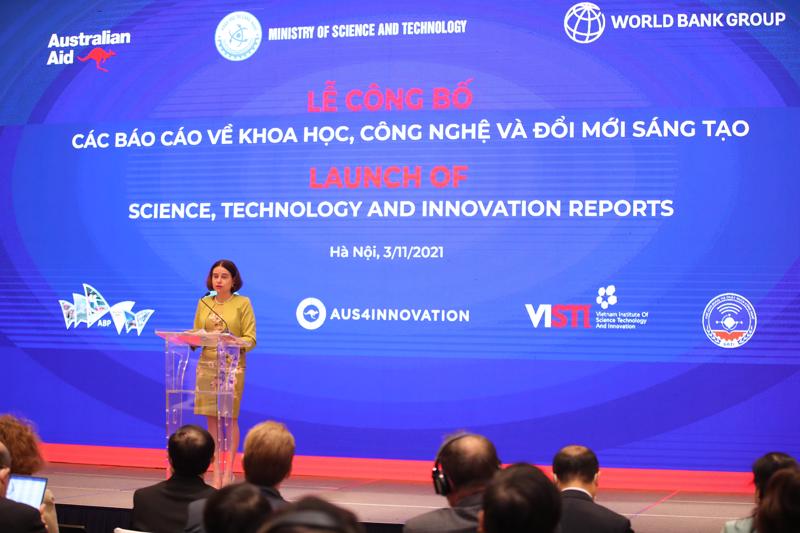Promoting technology absorption and diffusion and enhancing human capital will be key to driving sustained economic growth in Vietnam, according to two new reports on innovation released by the Ministry of Science and Technology (MoST), the Australian Government, and the World Bank on November 3.
The two reports show how science, technology, and innovation, as a new engine, contributed to Vietnam’s socio-economic growth and how the country can move towards continuous improvement and enabling an innovation ecosystem. The reports are also considered important reference materials for policy in Vietnam’s economic transition to 2030 and vision to 2045.
The Vietnam Science, Technology and Innovation (STI) report examines the current STI policy and development framework, analyzes the bottlenecks that hamper enterprises from innovating, and proposes a comprehensive reform agenda to spur innovation-led growth in Vietnam. Australia has been supporting Vietnam in making evidence-based policy decisions in STI, and the report is seen as another major milestone in the two countries’ partnership.
It suggests that Vietnam reorient its STI policy from supporting cutting-edge innovation to promoting the adoption and diffusion of technologies among a broad group of enterprises. Vietnam should also strengthen key complementary factors for innovation, such as workers’ skills and access to finance for innovative projects.
Vietnam will need new drivers of economic growth to meet its ambition of becoming a high-income economy by 2045, and innovation will be fundamental in boosting incomes and improving the quality of growth, according to Ms. Carolyn Turk, World Bank Country Director for Vietnam. “But there are different approaches to accelerate innovation, and this report presents ideas that could work well for Vietnam,” she said.
According to the Technological Change in Vietnam: The Contribution of Technology to Economic Growth report, by applying economic models to an extensive database of business technology adoption in Vietnam, researchers show that this adoption contributed significantly to Vietnam’s total economic growth during the 2016-2019 period.
The report collects and analyzes nearly 20 years’ worth of data to develop two modern economic models to quantify the contribution of technological progress to economic growth. Australia has been supporting Vietnam in making evidence-based policy decisions in STI, and this report is another major milestone in the two countries’ partnership. “We hope that MoST will make good use of this report and these two models to develop practical national STI policies in the long run,” said Australian Ambassador to Vietnam, H.E. Robyn Mudie.
Moreover, Vietnam has seen rapid growth both economically and technologically over the past few years. Strong leadership and institutions are also considered key for Vietnam to leverage the opportunities and ease bottlenecks in further economic development.
Vietnam will continue to upgrade the national innovation system for better creation, translation, and application of knowledge and technology towards its sustainable development goals by 2030 and 2045, according to Minister of Science and Technology Huynh Thanh Dat. “We greatly appreciate the support of the Australian Government and the World Bank in these efforts, and look forward to more collaborative initiatives to turn these thoughtful recommendations and tools into actions,” he emphasized.









 Google translate
Google translate